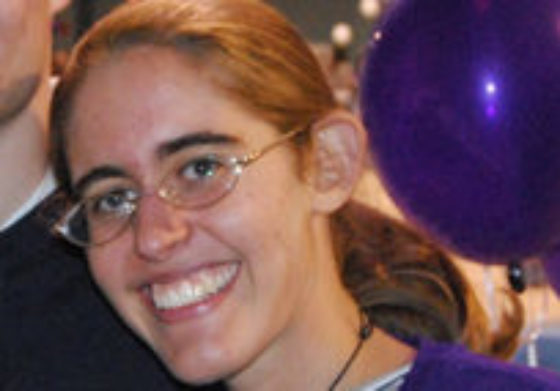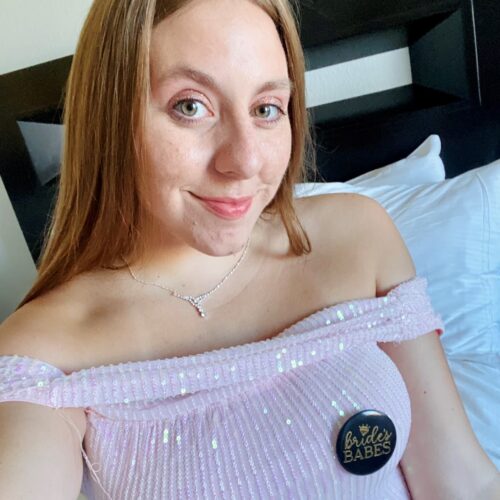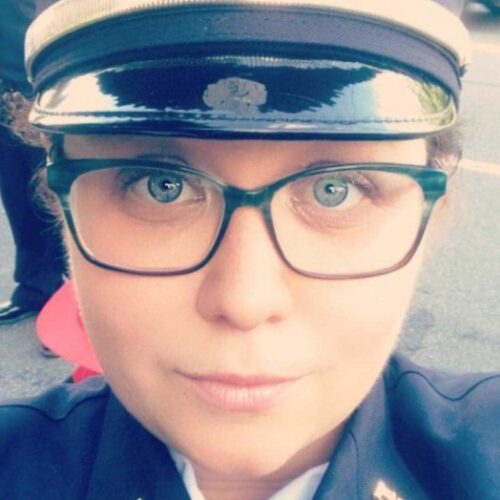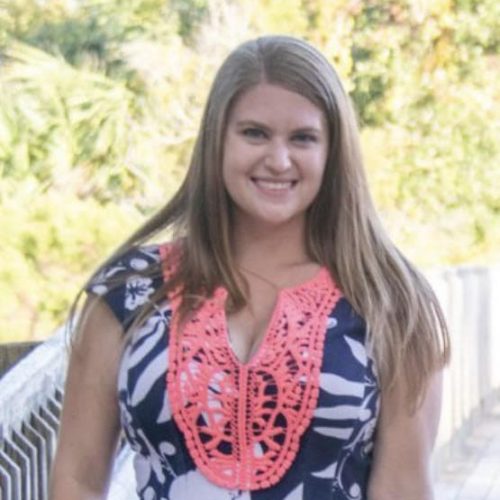
A red patch had existed above my breast for years. No one – not myself, nor my parents, nor my pediatrician thought it was anything out of the ordinary. We were wrong! During my freshman year of college, the patch began to spread, like a strange rash. My grandmother noticed it first at the beach just before my sophomore year began. She and my mother urged me to get it checked. But I was a busy college student, with classes, homework, clubs, service trips, a job, friends, and family to worry about – I did not have time to stop by the campus health office!
As sophomore year continued, the rash covered my entire body. It was so itchy that I had trouble sleeping at night, and I felt very self-conscious during the day, especially when spring and short-sleeve weather rolled around. My roommate noticed it, and she was the one who finally dragged me to health services.
The school nurses did not know what it was, so they gave me some hydrocortisone cream and told me to check with a dermatologist when I went home for the summer. My family pediatrician recommended one for me to see. I owe that dermatologist a lot. He recognized that this was something beyond his league and did a skin biopsy right away. I did not have an allergy or eczema or anything like that. I had a rare form of Non-Hodgkin lymphoma called cutaneous t-cell lymphoma, or CTCL. In other words, I had cancer.
What?! I was only twenty years old! It did not help that the statistics say that CTCL is more likely to be found in 60-year-old males of African descent. Somehow, I do not fit the bill. What difference do stats make when you are part of them – or break them? I spent the rest of that summer seeing more doctors than I ever had before. I had a CT scan, blood tests, more skin biopsies, and lymph nodes removed. I became a patient at a cancer institute in Boston. The people that treated me were amazing, for they see me as a whole person, not just an illness. When we are diagnosed with something ourselves, we realize just how important that is. I began phototherapy treatment. Twice a week, I took pills and went to a hospital in Worcester, MA for treatment with UVA lights. I hated treatment days! The pills made me feel sick, the lights made my skin darker, and for 24 hours after treatment, I had to avoid the sun; wearing big sunglasses, a hat, and long sleeves and pants to protect myself. At a time in life when I was just beginning to know myself, my life had to change, and I stuck out from a crowd like a sore thumb.
I was nervous to go back to school. People treated me different, and I did not like that. I pretended everything was normal, but of course I was not “normal” – who decides normalcy anyways? It took me a long time to accept the fact that I had cancer and to learn to live with it. My college roommate was amazingly patient with me. A campus minister with cancer took me under her wing and helped me on this new turn in my life journey. My equally amazing mom picked me up from school to take me to treatment one or two mornings a week, every week, for my last two years of college. The rest of my younger siblings had to do without her for hours at a time because of my cancer. Professors were understanding when doctor’s appointments interfered with classes or exams. Fellow cashiers at work supported me in many ways too.
“A cancer diagnosis does not mean we have to give up on living! I want to make the most of life, wherever it takes me and for whatever time I have left.”
In truth, my college graduation celebrated a group effort to get me through. And I am so grateful for that! I did not learn to be independent in school; instead, I learned the necessity of interdependence for my survival and sanity.
CTCL is a slow-moving cancer, but there is no cure. The goal was to put it in remission, but time soon showed that would never happen in my case, so the goal has become a constant fight to keep my cancer from getting worse. When phototherapy no longer worked, I was put on an oral chemo. Then, a topical chemo was added to supplement the oral chemo. Although they are stronger medications, I prefer these treatments since they do not make me feel as sick. I get tired easily, but other than that, I can live a new “normal” life.
A cancer diagnosis does not mean we have to give up on living! I want to make the most of life, wherever it takes me and for whatever time I have left.
Cancer as a young adult brings a lot of extra fears to light. After all, when we are trying to start a relationship or raise a family or find a job or go to school or move away from home, we have this extra, uninvited guest in the picture that other people our age do not worry about. How many other young people have to answer end-of-life questions about themselves? However, cancer has also taught me a lot of things that I might not have learned the same way without it.
Trust in myself and others is a big lesson learned. Valuing life and compassion for others have also become even more important to me since my diagnosis.
My faith has grown in leaps and bounds, as well. It sounds kind of strange, but I guess I can say that I am grateful that cancer taught me these things. After all, cancer has now become a part of my life, not a death sentence.
Symptoms
- patch above left breast started to spread uncontrollably
- turned red
- itch






